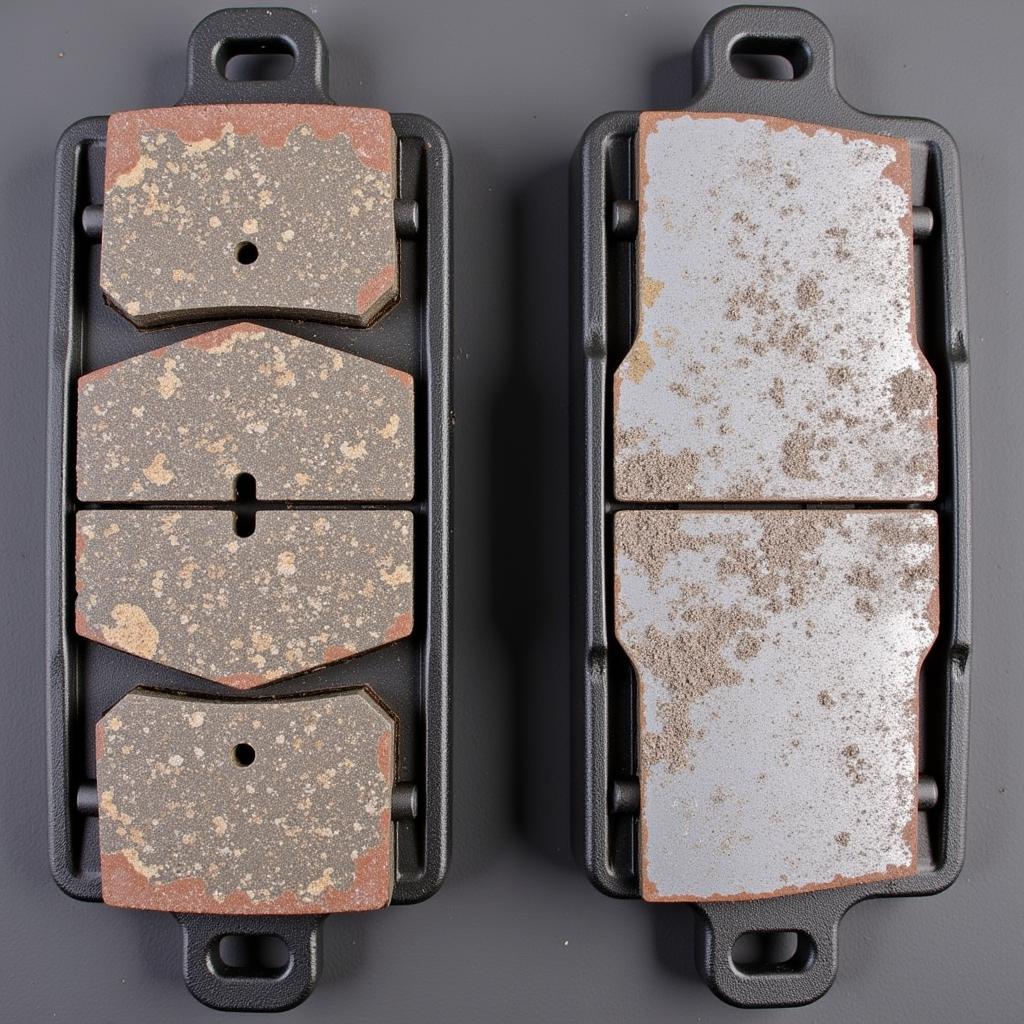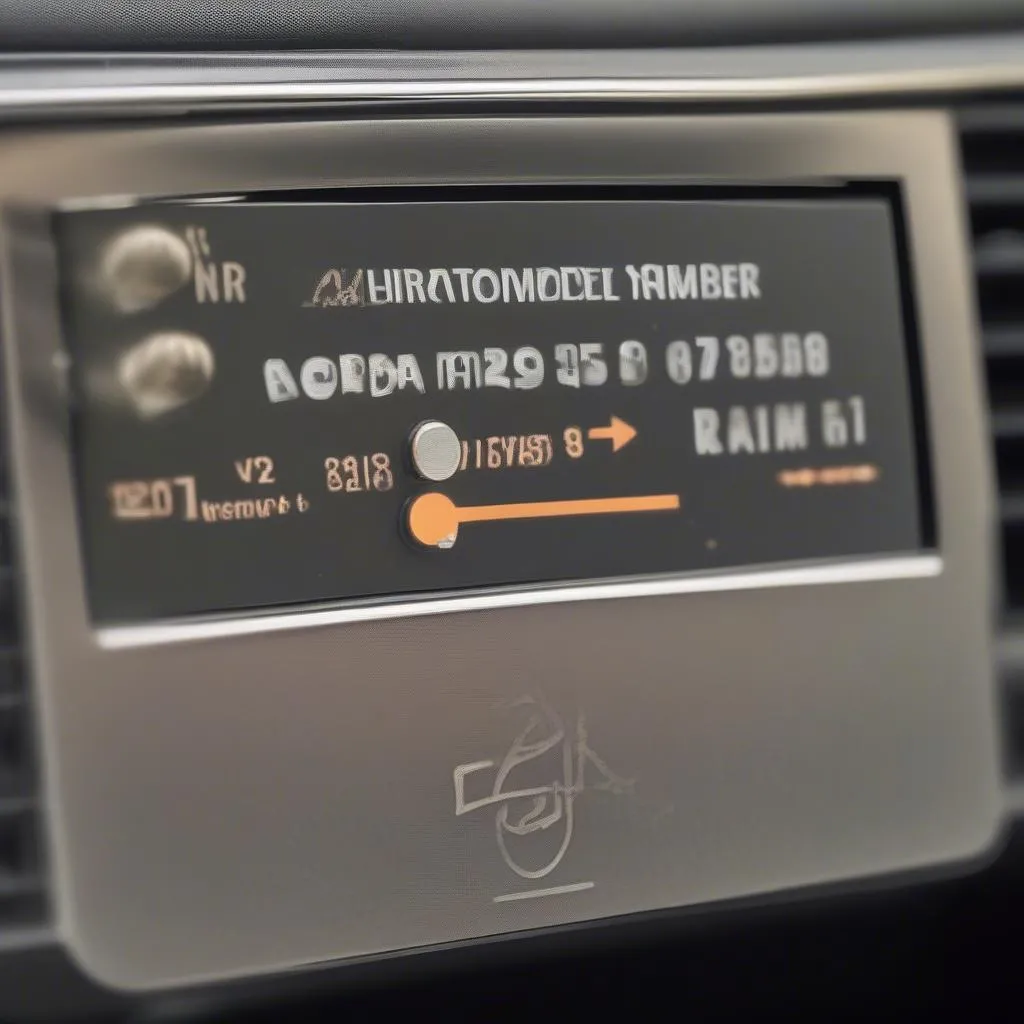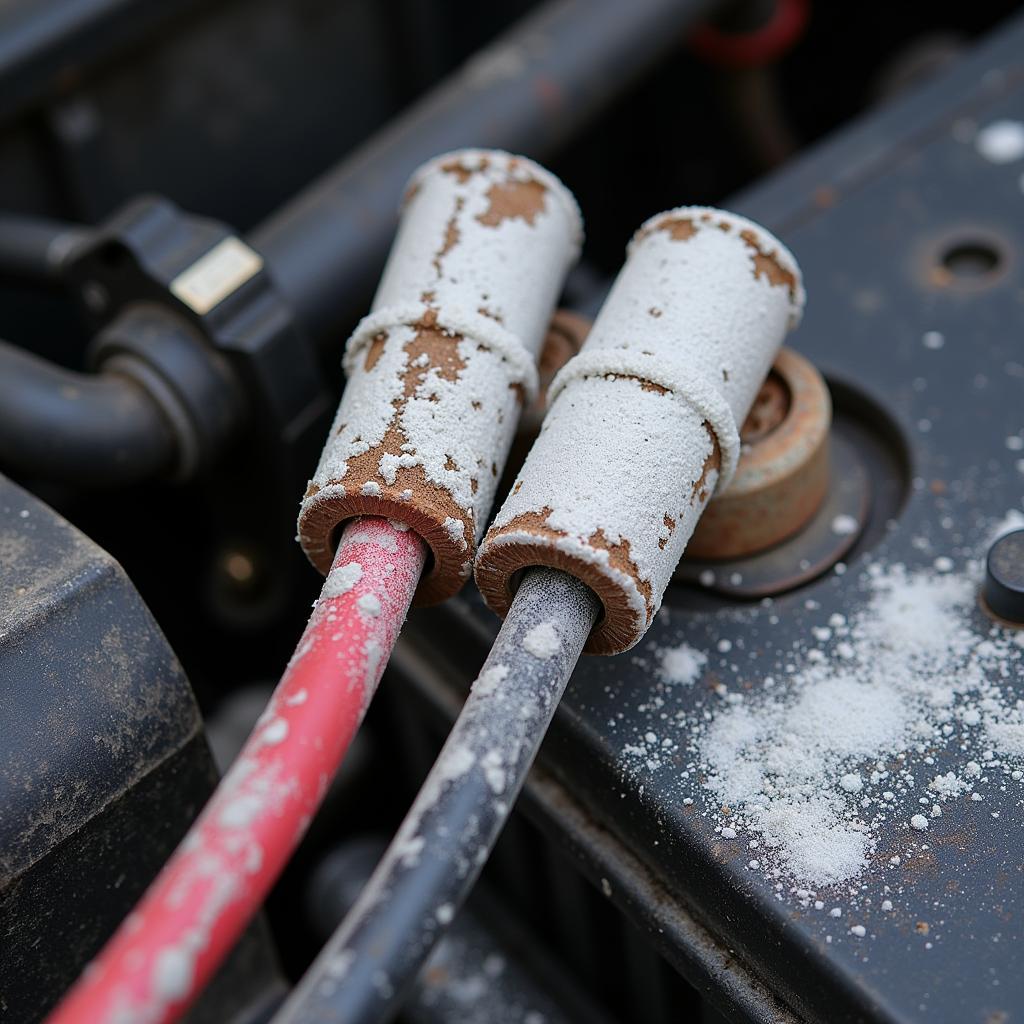The brake warning light illuminating on your Chevy C4500’s dashboard is a serious matter that should never be ignored. This bright red signal is your truck’s way of telling you something is wrong with the braking system and requires immediate attention. While it can be alarming, understanding the potential causes and knowing how to troubleshoot the issue can save you time, money, and most importantly, keep you safe on the road.
Common Causes of a Chevy C4500 Brake Warning Light
There are several reasons why your Chevy C4500’s brake warning light might be on. Some of the most common culprits include:
-
Low Brake Fluid: This is often the primary culprit. Brake fluid is the lifeblood of your braking system, and a leak or low fluid level can significantly compromise braking performance.
-
Worn Brake Pads: Your brake pads are designed to wear down over time. When they reach a certain point of wear, the brake warning light will illuminate to alert you it’s time for a replacement.
-
Faulty Brake Sensors: Your C4500 is equipped with sensors that monitor various aspects of the braking system. A malfunctioning sensor, such as a wheel speed sensor or brake pressure sensor, can trigger the warning light.
-
Issues with the ABS System: If there’s a problem with your Anti-lock Braking System (ABS), like a malfunctioning pump or faulty control module, the brake warning light may come on.
-
Parking Brake Engaged: It might seem obvious, but sometimes the simplest explanation is the most likely. Double-check to ensure your parking brake is fully released.
Troubleshooting Your Chevy C4500’s Brake Warning Light
Before you call for a tow truck, there are a few troubleshooting steps you can take to try and pinpoint the issue:
-
Check Your Brake Fluid Level: Locate your brake fluid reservoir under the hood. If the fluid level is below the “Min” marking, add the appropriate brake fluid (consult your owner’s manual) and see if the light goes off. If it does, you may have a slow leak that requires professional attention.
-
Inspect Your Brake Pads: Take a look at your brake pads through the spaces between the wheel spokes. If they appear excessively thin or you can’t see much pad material remaining, it’s time for a replacement.
-
Listen for Unusual Noises: When you apply the brakes, pay close attention to any unusual noises. Grinding or squealing sounds often indicate worn brake pads.
-
Check Your Parking Brake: Make sure your parking brake is fully disengaged. Sometimes even a slight engagement can trigger the warning light.
 Chevy C4500 Worn Brake Pads
Chevy C4500 Worn Brake Pads
When to Seek Professional Help
If your brake warning light remains illuminated after these initial checks, or if you experience any of the following, it’s crucial to seek professional help immediately:
-
Soft or Spongy Brake Pedal: This indicates a loss of brake pressure and requires immediate attention.
-
Pulling to One Side When Braking: This could signal a serious issue such as a stuck caliper or a brake hose failure.
-
Burning Smell While Driving: A burning smell coming from your wheels usually means your brakes are overheating, which could lead to brake fade or even complete brake failure.
Expert Insight from Mark Stevenson, ASE Certified Master Technician: “Never delay addressing a brake warning light. Your brakes are your vehicle’s most critical safety system. A small issue ignored can quickly escalate into a dangerous situation.”
The Importance of Regular Brake Maintenance
Regular maintenance is key to preventing brake problems and keeping your Chevy C4500 running safely. Be sure to follow the manufacturer’s recommended maintenance schedule for brake fluid flushes, brake inspections, and timely replacement of worn components.
Conclusion
A glowing brake warning light on your Chevy C4500 is a serious signal that should never be ignored. By understanding the potential causes, performing some basic troubleshooting, and knowing when to seek professional help, you can address the issue promptly and ensure your safety on the road. Remember, regular maintenance is the best way to prevent brake problems and keep your truck running smoothly for years to come.


